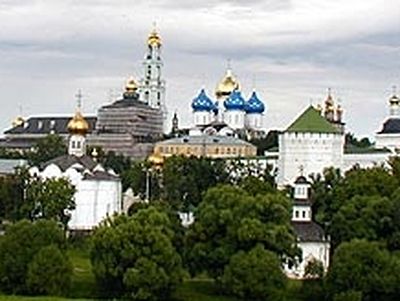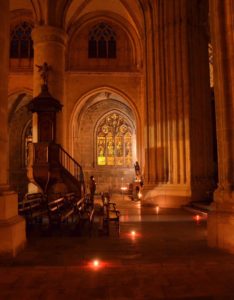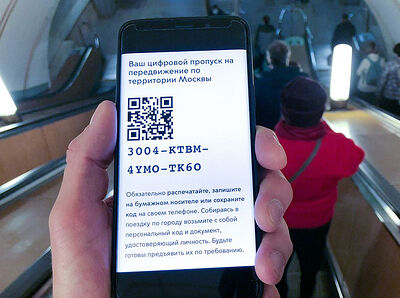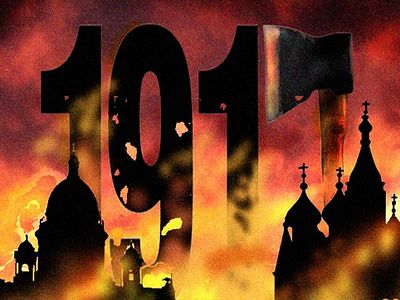Vietnam, often overshadowed by its turbulent history and economic challenges, is quietly witnessing a profound spiritual resurgence that challenges common perceptions. Amidst the dominance of Buddhism and Roman Catholicism, Orthodox Christianity has emerged as a quietly growing faith, defying conventional religious norms.
Established primarily through the efforts of the Russian Orthodox Church,  New Orthodox parish community established in VietnamDuring the meeting with the faithful, the Nha Trang parish was established in honor of St. Nicholas the Wonderworker.
New Orthodox parish community established in VietnamDuring the meeting with the faithful, the Nha Trang parish was established in honor of St. Nicholas the Wonderworker.
“>Orthodox communities have taken root in significant urban centers such as Vung Tau, Ho Chi Minh City, Nha Trang, and Hanoi since the early 2000s. Despite not being officially recognized as a state religion, these communities have flourished through grassroots efforts and personal exploration rather than aggressive evangelization.
 Vietnamese Orthodox Youth at the Christmas Liturgy
Vietnamese Orthodox Youth at the Christmas Liturgy
“I chose Orthodox Christianity due to my faith experience in the past,” shared Athanasius. “I was born Roman Catholic and explored Roman Catholic theology and liturgy. I found some issues in Roman Catholic theology throughout its history. I then tried Lutheran teachings, but it didn’t fully satisfy me. Finally, I discovered Orthodox Christianity, and its theology profoundly fulfilled me and my soul. I have experienced Orthodoxy and love it forever.”
Savva, leader of the Vietnamese Orthodox Youth Group, expressed, “God conquered the hearts of the Vietnamese people. Orthodoxy appeared at the right time, not through coercion or spiritual terrorism, but through love! Sometimes, we don’t even call our faith Orthodox; we have our own term, ‘Đạo Thương’, meaning, ‘the path of learning to love’.“
 Metropolitan Pavel’s visit to the parish of Protection of Our Most Holy Lady Theotokos and Ever-Virgin Mary in Ho Chi Minh City.
Metropolitan Pavel’s visit to the parish of Protection of Our Most Holy Lady Theotokos and Ever-Virgin Mary in Ho Chi Minh City.
“I chose  Why Orthodoxy is the true faithToday all of us are in such a situation that by no way it is possible to separate ourselves from the world. What is the true faith? We live in the world of religious pluralism. We face so many missionaries, each of whom offers his ideals, his life standards, his religious views that the previous or my generation would not envy you for this.
Why Orthodoxy is the true faithToday all of us are in such a situation that by no way it is possible to separate ourselves from the world. What is the true faith? We live in the world of religious pluralism. We face so many missionaries, each of whom offers his ideals, his life standards, his religious views that the previous or my generation would not envy you for this.
“>Orthodox Christianity perhaps primarily because of its ‘strangeness’ and ‘beauty’,” shared Gia Hoa, a young believer from Long An province. “I have always had a passion for exploring religions, so Orthodox Christianity truly fascinated me from the start. Moreover, I had many issues in life that required a firm faith foundation, and perhaps nothing suited me better than Orthodox Christianity. Gradually, I realized the core values and foundations of Orthodox faith, its holiness, and the beauty of an ancient faith.”
Orthodox Christianity in Vietnam is not merely a religious alternative but a path marked by its emphasis on love and spiritual growth, resonating deeply in a society navigating rapid economic and social change.
Demetrius, a dedicated young Orthodox believer, is currently immersed in cultivating Orthodox music projects in Vietnamese. He articulates his journey to Orthodoxy with conviction: “The primary motivation behind my decision to embrace Orthodoxy is rooted in my belief that it represents the true Church, preserving the traditions established by Christ Himself. Within the Orthodox Church, I experience a profound sense of divine love, both from God and from fellow believers, creating an exceptionally warm and welcoming environment. Additionally, my appreciation for Orthodox art and music played a significant role in my decision; the aesthetics and spiritual depth of these expressions resonated with me, fostering a deep sense of belonging and passion. Moreover, I recognized my own moral failings and felt as though I was straying further from righteousness. By surrendering myself to God, I sought His guidance to lead me back onto the right path and to draw me ever closer to Him.”
 Baptism of Vietnamese Christians from right to left: Ioann, Theodora and Emmelia at Our Lady of Kazan Parish, Vung Tau city
Baptism of Vietnamese Christians from right to left: Ioann, Theodora and Emmelia at Our Lady of Kazan Parish, Vung Tau city
In urban centers like Ho Chi Minh City, the Orthodox community has not only grown numerically but has also become a vibrant cultural and spiritual hub for Vietnamese believers. Regular services, educational programs, and community events cater to a diverse group of seekers, contributing to a broader discourse on spirituality and identity in contemporary Vietnam.
While challenges persist, including legal recognition and cultural assimilation, the Russian Orthodox Church’s presence in Vietnam underscores a universal quest for spiritual truth and fulfillment among its youth. As this movement continues to grow, it promises to reshape Vietnam’s religious landscape, offering a meaningful alternative to traditional religious practices and fostering a deeper understanding of spiritual identity in a globalized world.
Orthodoxy in Vietnam stands as a testimony to the enduring quest for spiritual truth and the transformative power of faith, as in Isaiah 40:31: But those who hope in the Lord will renew their strength. They will soar on wings like eagles; they will run and not grow weary, they will walk and not be faint.

 How to remain a Christian in the era of global digitalizationNot only people’s private life, but their religious, cultural, familial, political, and social values are going under surveillance.
How to remain a Christian in the era of global digitalizationNot only people’s private life, but their religious, cultural, familial, political, and social values are going under surveillance.
 On PrayerWhat should someone do who doesn’t know any prayers, but desires to pray, to save his soul?
On PrayerWhat should someone do who doesn’t know any prayers, but desires to pray, to save his soul?
 Preparing for ConfessionNow tell me: Is Confession profitable or needful? Certainly it is profitable and even essential; because, just as it is impossible to cleanse a vessel without ridding it of all uncleanness, so it is impossible to purge your soul of sins without confession.
Preparing for ConfessionNow tell me: Is Confession profitable or needful? Certainly it is profitable and even essential; because, just as it is impossible to cleanse a vessel without ridding it of all uncleanness, so it is impossible to purge your soul of sins without confession.


 UOC-USA’s St. Sophia Seminary receives full accreditationAs an institution of the UOC of the USA, the seminary is under the jurisdiction of the Patriarchate of Constantinople.
UOC-USA’s St. Sophia Seminary receives full accreditationAs an institution of the UOC of the USA, the seminary is under the jurisdiction of the Patriarchate of Constantinople.
 Ukrainian hierarch sentenced to 5 years in prisonA hierarch of the canonical Ukrainian Orthodox Church has been sentenced to 5 years imprisonment and the confiscation of property for various supposed crimes against the state.
Ukrainian hierarch sentenced to 5 years in prisonA hierarch of the canonical Ukrainian Orthodox Church has been sentenced to 5 years imprisonment and the confiscation of property for various supposed crimes against the state. Court upholds 5-year sentence against elderly Ukrainian Orthodox hierarchA court of appeal in the Ukrainian city of Vinnitsa ruled yesterday, June 18, to uphold the verdict against the elderly and ailing Metropolitan Jonathan of Tulchin of the canonical Ukrainian Orthodox Church.”>last week.
Court upholds 5-year sentence against elderly Ukrainian Orthodox hierarchA court of appeal in the Ukrainian city of Vinnitsa ruled yesterday, June 18, to uphold the verdict against the elderly and ailing Metropolitan Jonathan of Tulchin of the canonical Ukrainian Orthodox Church.”>last week.  UOC Metropolitan remains calm despite state suspicion and investigationThe whole matter is an attempt to undermine the canonical UOC and create unrest among its clergy and faithful, Met. John said after his home was searched.
UOC Metropolitan remains calm despite state suspicion and investigationThe whole matter is an attempt to undermine the canonical UOC and create unrest among its clergy and faithful, Met. John said after his home was searched. Prayer request: persecuted Ukrainian bishop undergoes heart surgeryHis Eminence Metropolitan Jonathan of Tulchin and Bratslav, a hierarch of the canonical Ukrainian Orthodox Church who has been subjected to searches and serious accusations by the Ukrainian Security Services (SBU) lately, underwent an emergency open-heart surgery today.”>undergo heart surgery. In March of this year, he
Prayer request: persecuted Ukrainian bishop undergoes heart surgeryHis Eminence Metropolitan Jonathan of Tulchin and Bratslav, a hierarch of the canonical Ukrainian Orthodox Church who has been subjected to searches and serious accusations by the Ukrainian Security Services (SBU) lately, underwent an emergency open-heart surgery today.”>undergo heart surgery. In March of this year, he  Ukrainian hierarch recovers from stroke, discharged from hospitalMet. Jonathan, 75, has been in poor health lately, which is exacerbated by the state’s persecution campaign against him.”>suffered a stroke and was hospitalized for 10 days.
Ukrainian hierarch recovers from stroke, discharged from hospitalMet. Jonathan, 75, has been in poor health lately, which is exacerbated by the state’s persecution campaign against him.”>suffered a stroke and was hospitalized for 10 days.  Patriarch of Jerusalem condemns prison sentence against Ukrainian metropolitanHis Beatitude Patriarch Theophilos of Jerusalem writes that he read the Russian primate’s letter “with great sorrow” and that “we strongly condemn this verdict.”
Patriarch of Jerusalem condemns prison sentence against Ukrainian metropolitanHis Beatitude Patriarch Theophilos of Jerusalem writes that he read the Russian primate’s letter “with great sorrow” and that “we strongly condemn this verdict.” Archbishop of Albania supports persecuted UOC hierarchs“We share in your sufferings and, to the best of our ability, share our testimony of the atrocities committed against the righteous Orthodox clergy, pious people, and famous holy sites of Ukraine.””>Metropolitan Athanasios of Albania, and others.
Archbishop of Albania supports persecuted UOC hierarchs“We share in your sufferings and, to the best of our ability, share our testimony of the atrocities committed against the righteous Orthodox clergy, pious people, and famous holy sites of Ukraine.””>Metropolitan Athanasios of Albania, and others. 
 On a Visit to Orthodox JapanThere are more than forty active Orthodox churches, and their parishioners aren’t simply Slavs who have moved to Japan, as you might first think. The parishioners of the country’s main Orthodox church—the Cathedral of the Resurrection of Christ in Tokyo—are mainly Japanese. St. Nicholas of Japan was the first to bring Orthodoxy to the Japanese land.
On a Visit to Orthodox JapanThere are more than forty active Orthodox churches, and their parishioners aren’t simply Slavs who have moved to Japan, as you might first think. The parishioners of the country’s main Orthodox church—the Cathedral of the Resurrection of Christ in Tokyo—are mainly Japanese. St. Nicholas of Japan was the first to bring Orthodoxy to the Japanese land. The October Revolution: Prophecies on Russia’s DestinyWhy is this subject so important to us (and we must understand that it is of very serious importance to us) who may have nothing to do with Russians or Russia? Those who have ears to hear, let them hear; and those who have eyes to see, let them see.
The October Revolution: Prophecies on Russia’s DestinyWhy is this subject so important to us (and we must understand that it is of very serious importance to us) who may have nothing to do with Russians or Russia? Those who have ears to hear, let them hear; and those who have eyes to see, let them see.